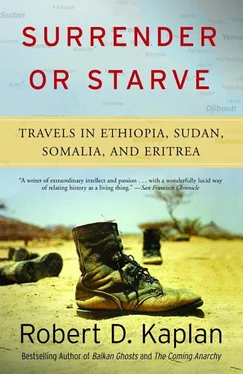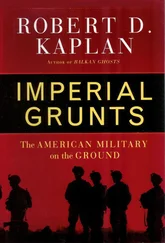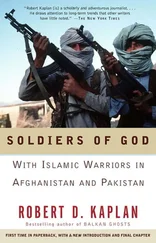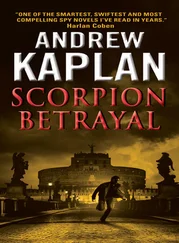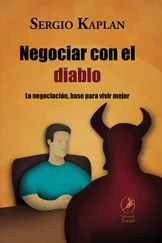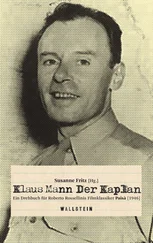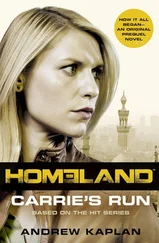It was practically all for naught, however, because it was not in the interest of either side in the civil war that people be fed. On June 1, 1986, twelve Kenyan truck drivers bringing food into the south from the Ugandan border town of Nimule were ambushed, presumably by SPLA rebels. The drivers were bound by ropes to their steering wheels, and then grenades were lobbed at the trucks. This put a virtual halt to the World Food Program’s overland relief operation. Only 600 of the 90,000 tons had been delivered. Churches, private relief groups, and U.N. agencies appealed to both the SPLA and the Sudanese government for a truce in order to let food in. The calls went unheeded. On August 15, the SPLA banned all flights over southern Sudan, claiming that the government was using the Red Cross as a cover to resupply its army. (A Red Cross official called the claim “ridiculous.”) To press the point, on the next day, the rebels shot down a Sudan Airways plane after takeoff from Malakal, about 425 miles south of Khartoum, using Soviet-made SAM-7 antiair-craft missiles. All sixty civilian passengers on board were killed. The Khartoum authorities grounded all flights into the region. Now no food could get in by air either.
“We are not repentant,” SPLA leader John Garang told Blaine Harden ( The Washington Post, September 19, 1986). “We warned that the airspace over War Zone I is closed.” Garang, sporting a revolver and a knife along with an AK-47 assault rifle, said that too much publicity had been given to food shortages in government-held towns such as Wau, where 170,000 starving refugees were reported to be besieged by SPLA troops after being driven out of their villages by cattle raiding gangs called marahlin .
While the SPLA was starving the towns, the Sudanese government was starving the countryside. Red Cross officials reported that hundreds of famine victims had testified to government brutality. Particular targets of the regular Sudanese army were villages occupied by Garang’s Dinka tribe, which accounted for 40 percent of southern Sudan’s population. Western diplomats said that whole Dinka villages were burned to the ground by government troops and their allies. Khartoum had fallen back on the old British colonial method of arming local tribes hostile to the Dinka, specifically the Messariya, Baggara, Murle, and Acholi. The Messariya and Baggara were Arab herders and nomads, known for their military prowess. Many of the Acholi were deserters from the army of former Uganda presidents Apollo Milton Obote and Tito Okello Lutwa, who a few months earlier had been defeated by the National Resistance Army of Uganda’s new president, Yoweri Museveni. Because these Acholi deserters also were launching attacks across the border in Uganda, Museveni retailated by banning relief shipments into southern Sudan, a move that further crippled the relief effort.
The situation had gotten desperate enough in southern Sudan for tens of thousands of Ugandan refugees of the Madi tribe to come back home. When I visited northern Uganda in mid 1986, the Madis already were building new huts and cutting the spear grass in preparation for planting maize near the banks of the Albert Nile. A Verona father, who had returned with the Madis, told me that utter chaos now reigned in southern Sudan; Acholi deserters were on the rampage in refugee camps “mutilating” their former Madi enemies, who had fought against the Acholis in Uganda’s own, just-concluded civil war. Cruelty was being piled on cruelty in an obscure and complex tribal free-for-all that only the Western relief community was trying to stop. It was noteworthy that the refugees spoke only about the suffering of their own tribe and when prodded about the fate of the others evinced little or no sympathy.
Near the end of August, M. Peter McPherson lent his voice to the call for a food truce. “As the condition of large numbers of innocent people continues to deteriorate rapidly, I call upon the government and the SPLA to allow desperately needed food to reach those in need” ( The Washington Post, August 29, 1986). At this point, the only supplies not in short supply in southern Sudan were salt, sweets, liquor, and cigarettes, which until a few weeks before—rebel antiaircraft fire notwithstanding—pilots had been willing to fly in on account of the high prices these items fetched. Grain just brought in too small a profit for a pilot to risk losing his life.
Fighting continued and neither side agreed to a truce. No amount of diplomatic pressure seemed to work. Finally, U.N. officials and others decided to shame the Sudanese authorities and the SPLA into opening up the air space over the south. A $1 million, thirty-day shuttle service, dubbed Operation Rainbow, was announced with much fanfare. The government-held towns of Juba, the capital of Equatoria Province, Malakal, the capital of Upper Nile Province, and Wau, the capital of Bahr el Ghazal were to be reached by flights from Khartoum. Yirol, an SPLA-led outpost in Bahr el Ghazal, was to be supplied by flights from Kenya. The foreign press corps in Nairobi was alerted and encouraged to proceed to Khartoum to cover the departure of the first flight.
The Khartoum authorities immediately objected to the relief plan because it included rebel-held areas. So before even getting off the ground, Operation Rainbow was scaled down to include government areas only. Still, crews from the three major U.S. television networks, among other media personnel, packed into the Khartoum Hilton for the lift-off of the first relief consignment. Then the delays started. By the time Sadiq el Mahdi’s government gave its permission, the SPLA raised objections. Then the government objected to the SPLA’s objections. For several days in a row, the departure was called off at the last moment. There also were reported problems with the company insuring the plane. Few journalists were willing to take part in the operation because who could be sure that some lone SPLA outpost, in spite of an agreement not to shoot, wouldn’t try to shoot the plane down anyway? In the end, a flight managed to take off in early October, with only enough grain to feed one decent-sized town for one day.
Through sheer doggedness, the Sudanese—the Arab government and the African rebels both—had managed to blockade an entire Western relief effort. A flight here and a truck there got into the south with badly needed supplies. But that was all. Because so little out of so much made it to its destination, even the most filthy and poorly equipped feeding center in southern Sudan was considered a “humanitarian showcase.” Columnist Jonathan Power wrote that relief officials were “crazy with anger.” (A similar situation ensued in late 1987 and early 1988 when actions by the Ethiopian government, the EPLF, and the TPLF prevented food from reaching hungry peasants. Unfortunately, in this case, despite an exemplary human rights record built up during many years, the EPLF’s behavior was little better than the SPLA’s.)
How many starved to death because of Sudanese intransigence? Who knows? Maybe tens of thousands, maybe more. Or maybe photographer Anthony Suau was right, and the whole thing was blown out of proportion from the start. In a region where a visit to just one lonely outpost could mean a life-threatening situation, who was keeping count? Remember, this was a crisis for the West only. The only crisis for the Sudanese was how to get the relief agencies off Sudanese backs.
None of this escaped the media, which duly recorded the frustrations experienced by the relief community. Network crews had to justify their expenses at the $120-a-night Khartoum Hilton, so they recorded what was not happening rather than what was. The short burst of television coverage that accompanied the non-lift-off of Operation Rainbow in October 1986 constituted the very last mini-event of the great 1980s famine in northeast Africa. By 1987, the famine story had moved south to Mozambique, although by the end of that year, famine again reared its head in Ethiopia, thereby resulting in renewed media attention. In addition to television, some newspapers, particularly The Washington Post, provided detailed and colorful coverage of the relief nightmare in southern Sudan. But most of these stories ran on inside pages and, like the television spots, had limited effect because the general public had long before switched its attention to other foreign news stories.
Читать дальше
